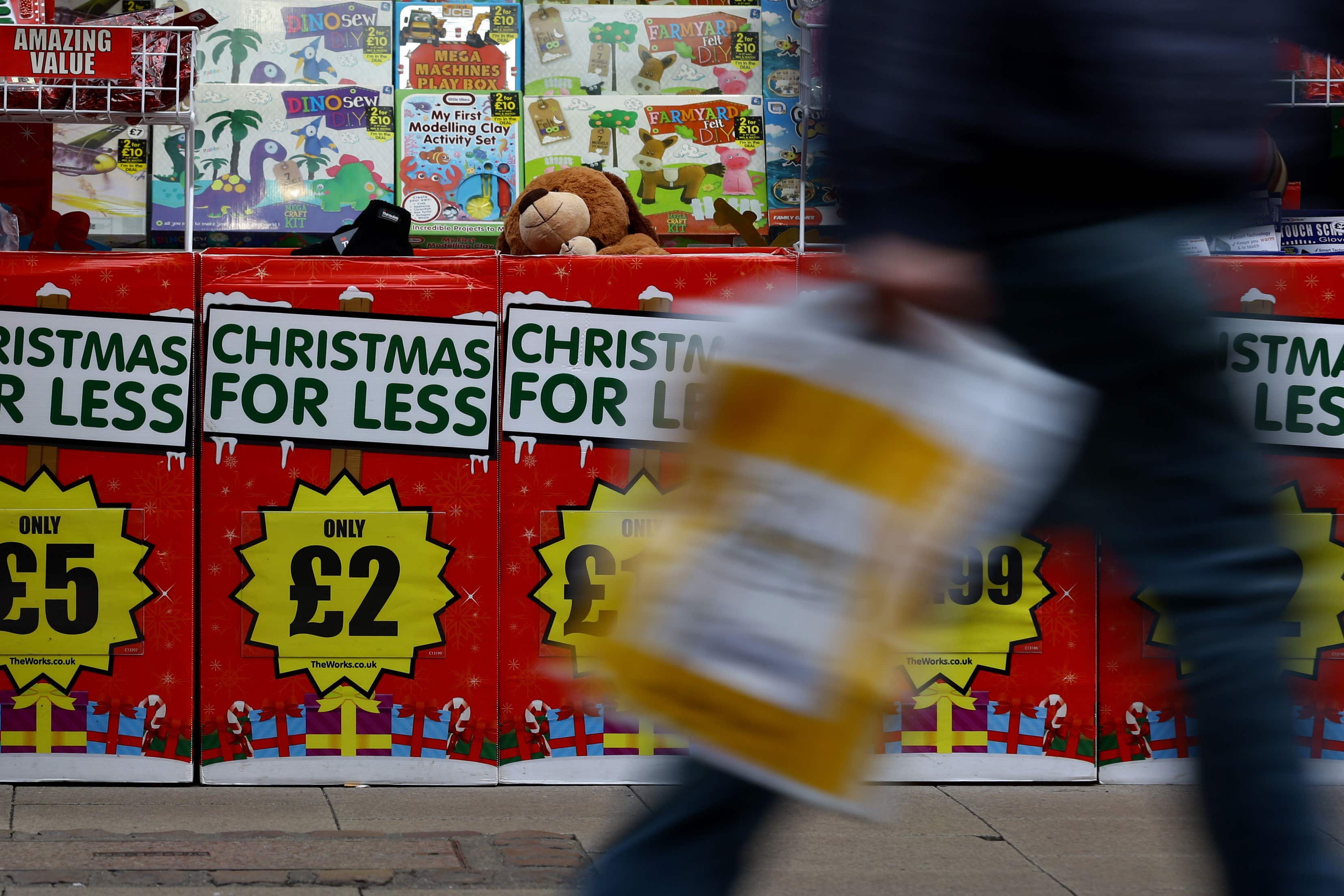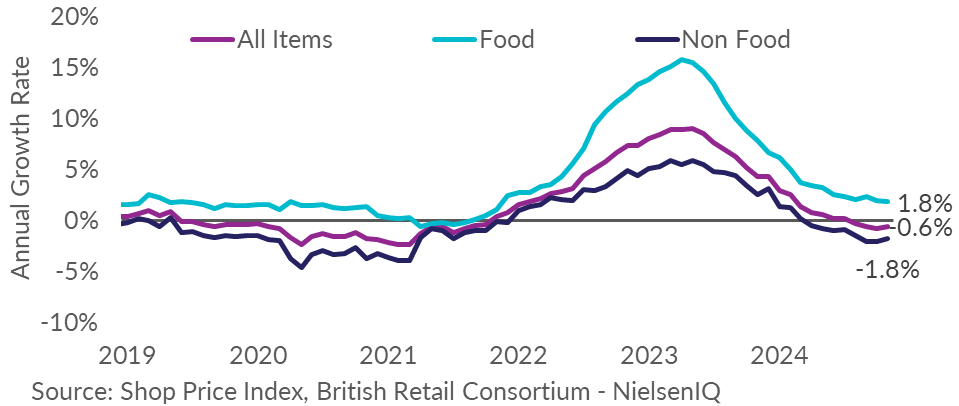17-month run of falling shop inflation ends amid warnings of price rises
Overall shop prices are now 0.6% cheaper than a year ago, but have risen from October’s 0.8% cheaper, according to the BRC and NielsenIQ.

A 17-month run of falling shop inflation ended in November, amid warnings that higher costs for retailers will “inevitably” lead to rising prices for consumers.
Overall, shop prices are now 0.6% cheaper than a year ago, but have risen from October’s 0.8% cheaper than a year earlier – the first time in 17 months that inflation has been higher than the previous month, according to the British Retail Consortium (BRC)-NielsenIQ Shop Price Index.
Prices for fresh food were 1.2% higher than last November, up from 1% in October, driven by items such as seafood, which is particularly vulnerable to high import and processing costs during winter, and tea, as poor harvests in key producing regions continued to affect supply.

Coffee prices saw a dip, expected to be momentary, as global bean prices approached record highs, and overall food inflation slowed to 1.8% from October’s 1.9%.
Prices for products other than food remained in deflation, at 1.8% cheaper than a year ago, but rose from 2.1% cheaper in October, as many retailers lifted discounting.
However figures show significant bargains remained in place across fashion, furniture and electricals in early Black Friday sales.
BRC chief executive Helen Dickinson said: “November was the first time in 17 months that shop price inflation has been higher than the previous month, albeit remaining overall in negative territory.
“With significant price pressures on the horizon, November’s figures may signal the end of falling inflation.
“The industry faces £7 billion of additional costs in 2025 because of changes to employers’ national insurance contributions, business rates, an increase to the minimum wage and a new packaging levy.
“Retail already operates on slim margins, so these new costs will inevitably lead to higher prices.”
Mike Watkins, head of retailer and business insight at NielsenIQ, said: “Shoppers are still being cautious by shopping savvy for the essentials and holding back their discretionary spend, so the lower level of inflation should help sentiment ahead of Black Friday promotions.
“And with lower inflation than this time last year, many food retailers are extending offers and discounts to help sales momentum in December.”
Bookmark popover
Removed from bookmarks